Graham Reid | | 11 min read
1 Giant Leap: How Can I Be a Better Friend to You?
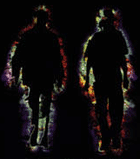
A few drinks and late afternoon pre-dinner nibbles in an Auckland bar with London-based, world music-inclusive musician Duncan Bridgeman of 1 Giant Leap means a free ranging conversation: American politics; how the Western world unforgivably medicates its young (especially teenage boys); Maori moko; 70s prog-rock (he likes the voice of Yes frontman Jon Anderson, and that lapse in taste doesn’t go unchallenged) and the pygmies in Gabon he worked with.
We also canvas the problems with music publishing; shamanism; smoking pot in Goa; the global PR spin which says Brazilian girls have the best bottoms and the Chinese eat dogs; remote villages in African and China; film-making on the fly; the rise of the middle-class in India; spiritualism; the meltdown in the global economy . . .
And that’s without even getting to the new project by Bridgeman and his partner in 1 Giant Leap, Jamie Catto, which is an extraordinary film/DVD/double CD document called What About Me?
In it’s own wayward and almost conversational way the digressive project traverses similar territory as we have randomly discussed -- but with a better soundtrack than was playing in the bar we met in.
The new 1 Giant Leap project has musical contributions by Michael Stipe, Baaba Maal, Lila Downs and kd lang (among many dozen of less familiar names) alongside writers/philosophers/new age gurus such as Deepak Chopra, Noam Chomsky, Ram Das and Eckhart Tolle as well as Carlos Santana, Susan Sarandon, Billy Connolly, Stephen Fry . .
No surprises there given their previous project had contributions from Robbie Williams, Whirimako Black, Michael Franti, Bollywood legend Asha Bhosle, Grant Lee Phillips . . .
I think said to him “I want your job . . .”
Of course that was before I heard that What About Me? -- three years work in dozens of uncomfortable countries, editing down over 1000 hours for a movie and a television series -- had been buried and marginalised when it was released in Britain.
And when he arrived in New Zealand the tie-in double album hadn’t been picked up by a local distributor, the film wasn’t being shown and the television series wasn’t schedule (nor looked likely to be).
That he could still be in such good humour is a testament to his patience and vaguely Buddhist worldview.
But the good news (especially for Elsewhere people) is there is a DVD package available which has the film, the tv series and much more on it. It is travel, music, ideas, arts . . . Very Elsewhere.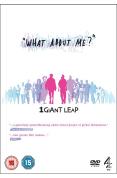
Tell me about the beginning of this process: I know how much groundwork people like Michael Palin will do and what a huge crew he carries. But for you two?
We didn’t plan to do what we’ve done. We were influenced by Peter Gabriel and the way he picks up different culture, the Brian Eno/David Byrne album My Life in the Bush of Ghosts where they mixed African music with evangelic spiritual teachers . . . All that kind of stuff.
But we were just totally ignorant about culture, we’re just two London boys who had made no studies of it and we’d just listened to a lot of music and thought there was incredible stuff out there, so let’s try and mix it up.
When we came to New Zealand on the first project it was because Jamie’s daughter was living on Waiheke. We’d run into Michael Franti who said we had to hang with the Maori guys and that’s how we met Whirimako Black and DLT and so on. We had no idea about Maori culture, and I think that is in our favour because we’re not to prove anything or teach anything, we’re learning.
The only thing we ever do is look for a good fixer wherever we go, in Mexico we had this great woman helping us and the only person I knew of there was Lila Downs who we wanted to work with.
So this woman sent us about 40 CDs of different people and we just said ‘that one’ and we didn’t know what style of music it was, it just what we liked. But you go there and it reveals itself.
So we’re not like Michael Palin at all! We only have a rough schedule.
I like the fact they are literally field recordings, people you just record in villages and deserts.
Yeah, we just film where people are. And it is like some kind of strange jazz, the theme keeps coming back but we don’t know where and when.
There’s always the top line of vocalists and usually one or two lines of instrumentalists like an erhu (Chinese violin) or a drummer. But 80 percent of what you hear is the backing track that I started with.
So I have taken it as afar away from its context as possible and when the erhu comes on the kd lang track -- you’ve got banjo, guitar and erhu -- it sounds good because it doesn’t have a context.
Or when you hear Michael Stipe singing with a tabla and a nose flute from here it makes you realise that everything isn’t quite as different as people lead you to believe. And I’d like to take it further, mix it up more.
Again with philosophy: if you listened to Noam Chomsky drone on for an hour you’d have to be really into and it and you’d have to concentrate all the time. But if you can get him down to 30 seconds and he says the real thing about the manipulation of the masses and then someone like Jhelisa comes in and sings, then that goes in deeper than an hour long thing, because he’s out of his usual context. He’s in a pop song!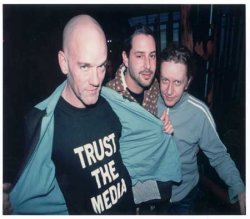
I like the Michael Stipe track but he sounded like a hard man to nail down.
It was difficult.
Was he difficult, or was it just his schedule?
Well, he’s a pop star and has been forever you live in a different planet. He’s lovely but he’s precious. Jamie is a good mate of his but I don’t know him that well. I know he works he hard on his lyrics, really has to tear them out, but with 1 Giant Leap he had to do them quite quickly. To see him surrender to that process was really quite beautiful.
It is a beautiful song, “I have seen trouble and trouble saw me . . . “
Talking about that context, there are a lot of people I like in 1 Giant Leap who I couldn’t listen to a whole album of. In this iPod world people don’t so much listen to albums but they will listen to one track, so your listening becomes like a radio station. 1 Giant Leap is in that format.
You hear Baaba Maal and when you’ve had enough of that you’ll get something else, it is constantly titillating your ears, I tried to do it in the beginning of the 80s but nobody let me do it. I was working with John Foxx at the time and saying I wanted to do an album and have a different singer on every track and no one would give me the money because they thought I was mad.
Doesn’t that tell you how western culture pop culture is structured: you are a band so it’s you four against the world.
Yeah yeah, everything has been in the Beatles mould. I was brought up on prog rock in the 70s and although I love a lot of punk rock I blame it for a lot of the sterilisation of music. I was brought up on the idea of pushing the envelope, going out somewhere and then suddenly 1977 came along and you weren’t allowed to do that anymore. All the prog rock bands split up -- or tried to do pop songs which was even worse, like Genesis.
The trance thing in the 90s -- because people were taking drugs again -- started to get into a longer form of music and now it’s incredible that in this modern world we’ve been allowed to do 1 Giant Leap with eight minute songs and nothing repeats and where there are no choruses or radio hits. And people like it.
It’s got to the stage where people want something you can leave on and it takes you on a journey.
I always put a few too many things in the mix because I like it and we are doing the same with the films. You can’t see it all the first time, so you can watch it again and again. Some people hate that.
Did the contributors get paid?
The musicians all got paid and we’ve started the One Small Step publishing company for those people who don’t have a publishing company, but the weird thing is that there is the protocol with interviews that if you pay you might be paying for them to change their view. So nobody we interviewed expected to be paid.
So you got all these remarkable musicians and other people, extraordinary footage from odd places around the planet and all this wonderfully eclectic music and . . . Nothing happened with the final film or television series in Britain?
A lot of everything for television is made for a demographic these days, and this wasn’t. The television people would say if we took the religion out they could put it on at 10 o’clock, or if we took the music out it could go in the travel slot. So people didn’t get it. Eventually the series screened at 12.30am on Channel 4. Basically it got buried.
The television series show is a kind of “making of the film” and we were a bit forced into doing that, we didn’t want to.
The Journey episode seemed the be the key one, but it’s the last. Why?
Yeah because . . Logically it should have come first but we put the other one first for the television because you get the big hitters like Noam Chomsky, Eckhart Tolle and a really good overview rather than just these two hippies fumbling their way around the world.
The whole problem we had was that we never wanted to lead with television, it was never meant to be television. We’d made this kind of non-linear art film with no captions on it, you just have to disengage that part of your brain and go with this arty thing and of course in the world we live in we were lucky enough to get the funding to make it. But people go ‘if you can get this on TV put the captions on, put some story into more‘. So we did it.
Well, it works both as a long film and separate and very different television episodes.
Yeah it does, and on the DVD we’ve got the TV series, and the film, and the short films. So people are discovering it and I have to surrender to that.
People are also realising that if you watching the movie it doesn’t play all the chapters. It was never meant to be a movie in that sense anyway, it was meant to be a collection of short pieces that went with the music track.
The making of the music with various musicians is the driving aspect but also what comes through is what people are saying. What a lot of people were saying -- western people by and large -- is we are all very unhappy. Yet ironically their creativity came from their unhappiness. If Stephen Fry had enjoyed a very happy childhood he would not be the Stephen Fry we know.
Exactly. Yes. That episode The Wound is the key. Psychotherapy is the same. You see there’s nothing new in 1 Giant Leap, all we’ve tried to do is put these kind of psychobabble/new age/healing messages or whatever you want to call them into a form that will make it to people who are not usually into that thing, not just preaching to the choir.
But by having Stephen Fry talking about it for 30 seconds we cut him like lead vocal, so the soundbite we end up with is eight bars long, and when he finishes the music comes in and it feels like it was part of the song.
The other thing I thought was that some people were saying there has never been a more spiritual time in the world than right now. Well, I was alive in the late 60s/early 70s and it was everywhere. But I guess that’s the collective amnesia we suffer from.
Yeah, but I think maybe in the 60s people thought there was change and we had switched into some new paradigm. I think people are realising now that something economically, politically, socially and environmentally beyond the mind is out there in the world and something is changing form one thing to the next but no one knows what it is.
Western people particularly look to the simplicity of village life but I’ve never thought there was much dignity in poverty or endless manual labour in a field, those people want to escape from that and enjoy more of what we have.
Yes. Sometimes. But my experience is that cliché, however horrible, is actually true. When you go to these places that have got nothing people are happier.
I agree that people may be happier but . .
Well we have so many options we’re fucked up with choices, so we never live up to our expectations. If your father was a shoemaker and you are a shoemaker and your son will be a shoemaker it sort of makes it all a bit simpler, and maybe you just enjoy your day more because you are not trying to better yourself.
There was the teacher you spoke to in West Africa somewhere who was very insightful but also . . .
Yeah he was a lovely guy who said some interesting things and some outrageous things, like “in Africa I can rape my wife and they can’t say no“. And yet you speak to African women and they will say the same. To us that is really weird but to him he’s like, “that’s weird?”
I remember when people in the West embraced Fela Anikulapo Kuti then they suddenly found he was almost abhorrently sexist in his thinking. We liked that he smoked a pound of dope a day but the other bit was difficult. But he had come from another mindset.
Exactly and I’ve just come from Columbia and these people appeared in the mid 90s after living up at 17000 feet and nobody knew they were there. They came down and they had looked at what was happening down below and they thought it was going wrong and they wanted to talk to us about it, they call themselves the Elder Brother. I’ve just been hanging out with them for two weeks, but you can’t put yourself in their mindset, it is impossible. And they can’t put themselves in ours, so when you are talking to them it is really hard to frame it.
Like at the back-end of China where they have nothing and are living in shit but they are the happiest people you’d ever meet in your life. Why?
The English writer Oliver James came through New Zealand some years ago doing a study on middle class unhappiness and trying to find out why that was. It was about wanting more.
One of my favourite chapters in What About Me? is the one on wanting, where you’ve got these different people talking and one is a Baptist minister who talks about God putting a gap in us all. I think he’s totally right.
He says the only thing that can fill it is God or an awareness of spirit. The whole of life is wanting but we are taught to hate the wanting. But if you embrace the wanting -- like meeting a girl, often the wanting is the best bit, we want to get that over with but why not just stretch it out and enjoy all that wanting?


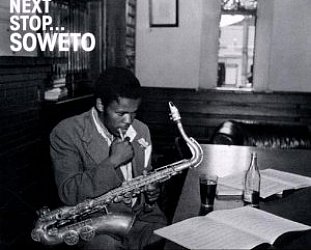

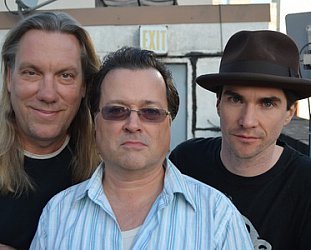
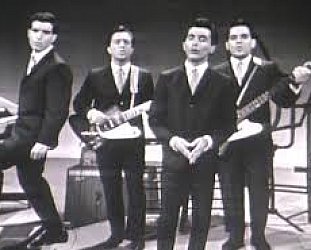
Jeremy - Sep 20, 2010
What About Me? had several screenings on The Documentary Channel in NZ in 2009. Knowing nothing about it, we recorded it out of curiosity and sat down on a Friday night with a mate to check it out. Wow! It blew us away. The work of genius. The music, the images, the philosophy - all of it is powerful and works superbly together. We both bought the DVD immediately and have watched it several times since. A hidden gem.
Savepost a comment